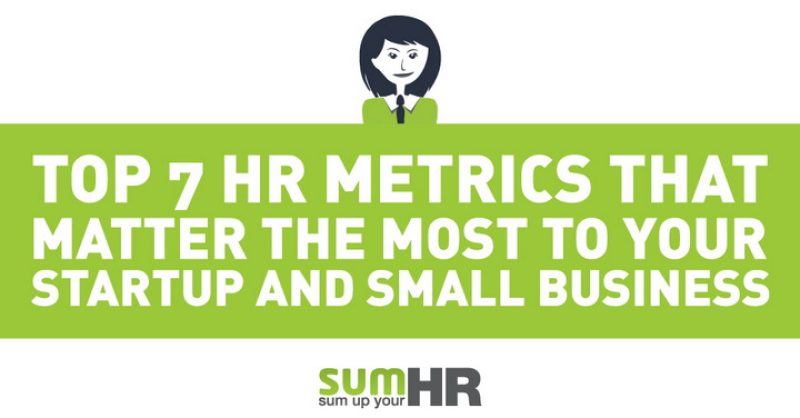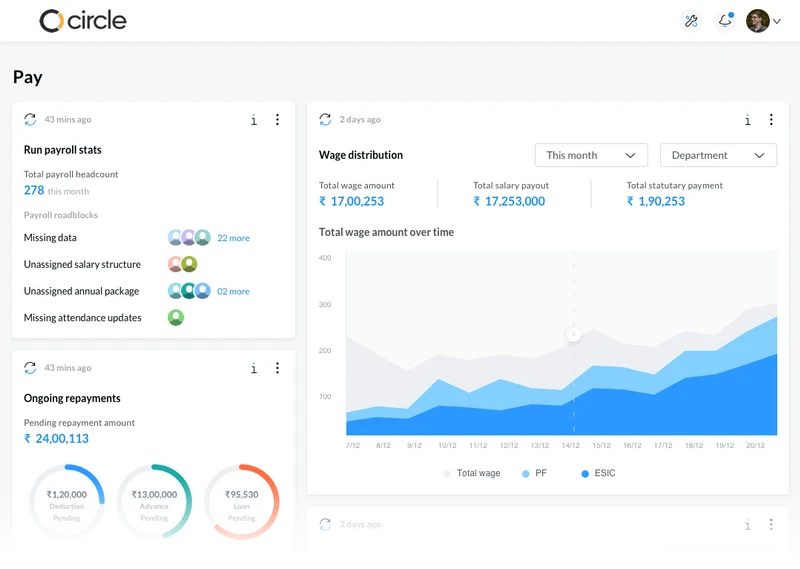HR metrics often act as measurements that are used to uncover the strengths and weaknesses of a company. It usually includes calculation of turnover of the company, returns on human capital, expenses per employee, costs of labour etc. Companies often tend to overlook HR metrics on the pretext of these being too complicated to deal with. However, it is important to understand the importance of HR metrics in determining which areas the company needs to focus on in order to improve performance.
Each small business or startup needs to constantly evaluate its strategies in order to expand. HR metrics help you in assessing your business and devising strategies which make them extremely useful for business and start-ups.
So do you need to take care of every piece of data available to you? Well, in an ideal world, yes, but we do not live in an ideal world. Which means there are still 7 HR metrics you must keep a track of.
Top 7 HR Metrics you should keep a track of:

It is worthwhile to have a look at the top 7 HR metrics that will matter the most to your startup and small business:
1. Cost of hiring each employee
This metric will tell you how much it costs your firm whenever you hire a new employee. This includes the costs incurred for not just recruiting, but also for the training and the timeframe which a new employee takes to start delivering results. Each small business and start-up involves frequent hiring of employees and these HR Metrics will be extremely useful for them.
2. Revenue generated by each employee
A continuation of the above, this one helps you to know the amount of revenue each employee is helping to generate for your business. It can, therefore, help during appraisals of employees.
3. Rate of Absence
Performance is also linked to the regularity of an employee. Consult this HR metric to know the number of days your employees were missing as well as the number of days they have worked.
4. Cost of Benefits
Every company offers certain benefits to its employees. This particular HR metric will help you get an overview of how much these perks and benefits cost your business.
5. Satisfaction
Although a bit tricky, this metric tells you about the level of satisfaction of employees in a company. Every startup needs to have satisfied employees as they produce better output. However, satisfaction is an abstract term and can only be measured through surveys. So as we said, this a bit tricky to gauge but certainly should be tracked.
6. HR metrics about "Employee Turnover"
This metric tells you about the number of employees that leave your company in a given year. It helps you identify the attrition rate and also gives a better picture of recruitment-related costs, especially when combined with the HR metric of the cost of hiring a new employee.
7. Tenure
Longevity and consistency of employees also helps to determine the level of satisfaction of employees. These HR Metrics help a business understand the average amount of time that the employees have been in a company. This along with the above metric, further helps in overall human resource management, especially from a recruitment and cost per employee perspective.

Apart from the above-mentioned HR metrics, there are a number of others that can be used to reveal a lot of useful info for a startup or small business.
There are a number of great HR Management Systems that will help you to track various HR metrics, whenever needed.








